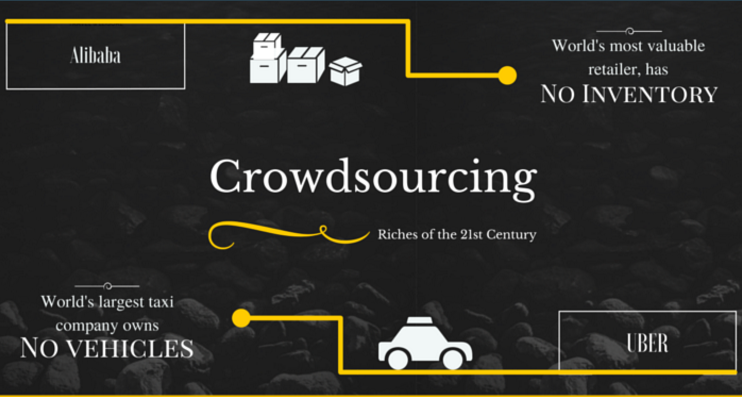
Crowdsourcing: Riches of the 21st Century
Crowdsourcing allows for a partition between the value chain and the cost structure. Not every value-add activity to the business is necessarily shadowed by a parallel cost. Companies tend to explore methods of leveraging third-party volunteers to help create value, or aim to enhance customer engagement to build greater brand loyalty. The benefits reaped from practicing the crowdsourcing ideology far supersedes numerical values of traditional cost saving methods, as crowdsourcing can also act in support of the revenue generating model by developing customer involvement. There are multiple pieces of evidence across multiple industries that suggests the future’s industry leaders are those who best integrate technologies to leverage the role of crowdsourcing in their business models.
Since its launch, Airbnb has witnessed the cheers and backing of many investors including Berkshire Hathaway mogul, Warren Buffett. On the contrary a negative tone resonates among previously-comforted lodging industry giants such as InterContinental Hotels Group and Marriott International.
Customers may not always feel that they are part of a crowdsourcing crusade. Take hotels for example: in the lodging industry, green practices can mean enormous cost-savings, and thus better profitability. How often do you see a note in the hotel toilets stating “Re-use towels, we are a green space!”, or “turn-off the lights to save the environment”. While it’s a stellar thing to be green, it’s also a practice of cost-minimization by the hotel. The best way to establish that? Let the customer adopt the task. With towels being re-used daily, the hotel saves thousands of dollars on energy costs, and thus the profitability per room increases. Thankfully, it remains a WIN-WIN-WIN situation, provided the customer’s green conscious is fulfilled, and our planet is being saved.
The details of crowdsourcing practices may not be replicable across different industries. Rather, their principle of thought to search for solutions that do not necessarily lie within your realm of an organization, but beyond the office walls is the true take from modern industry successes. Crowdsourcing is a newly founded terminology and practice born out of an increased connection between businesses and their stakeholders. Crowdsourcing is expected to dominate in the next five decades.









